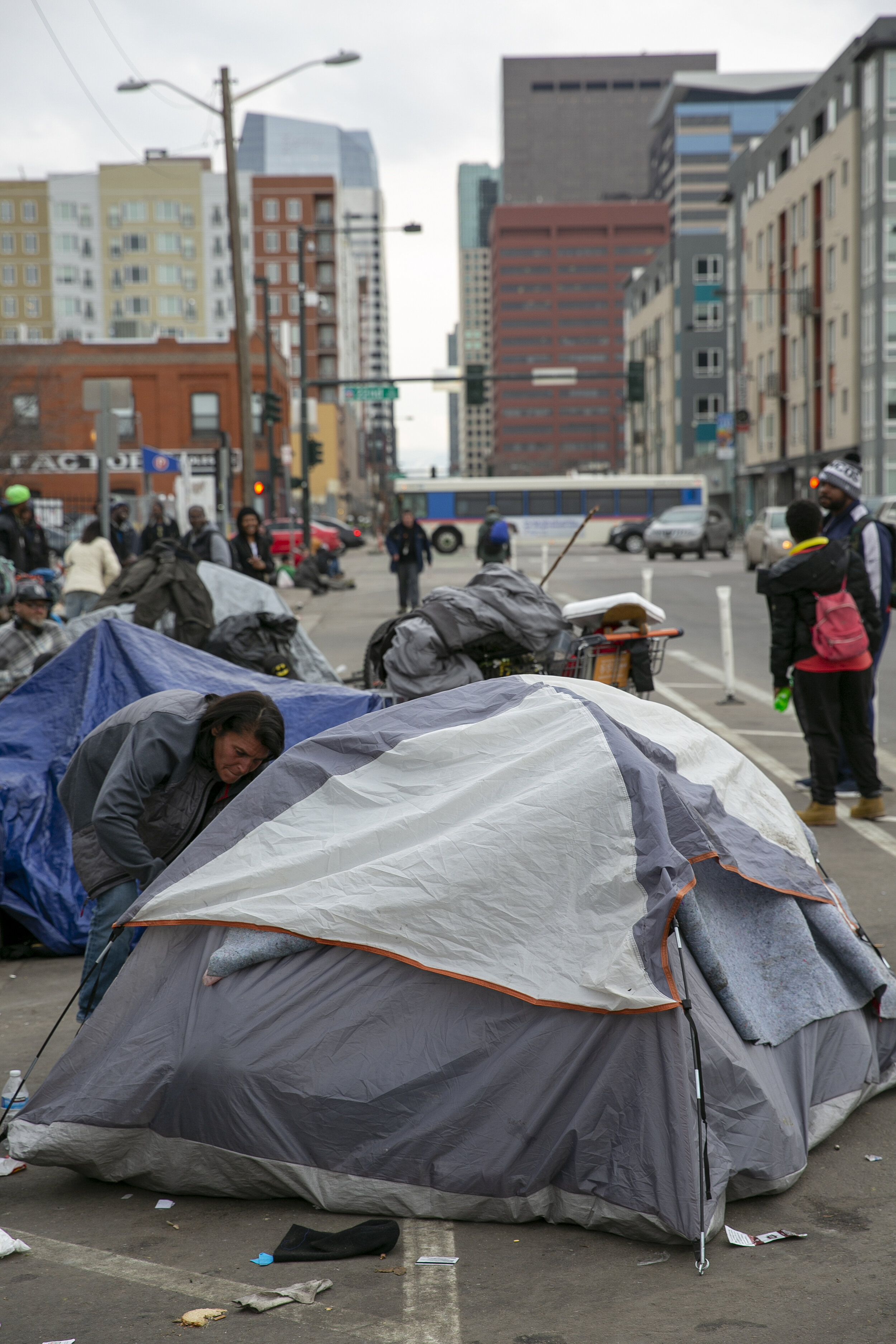Councilman Hind Sets Story Straight on Homeless Campsite
Story By Robert Davis
Photo by Giles Clasen
A lot has been made of Denver’s proposed temporary safe outdoor space. The proposal has attracted the attention of homeowners, business owners, and even Pete Coors—who called it “appalling” and another example of City Council working to “establish homeless encampments on private property in our neighborhood.”
So, District 10 Councilman Chris Hinds cleared the air about what he described as misinformation spreading throughout the city on November 13. He addressed concerns about citywide support for the proposal, the permanence of the outdoor space, perceptions that the space will increase in trash and crime, and that there is no accountability for the service providers.
Hinds estimates that out of the hundreds of emails his office has received about the proposal, about 85 percent are against the proposal. This helps drive the narrative about the proposal’s unpopularity. Hinds said most of his office contacts are negative in general, partly because those who voice support often do so at city meetings when the proposal is being discussed.
Moreover, most of the emails he receives about the proposal are critical of matters not in the proposal itself, Hinds added. Some examples include that the outdoor space will become a permanent fixture and that it will be hosted by the Belong Church at 16th Avenue and Ogden Street in North Capitol Hill.
There are two current properties the city is looking at utilizing for the proposal, both of which are in the Capitol Hill neighborhood. One is a parking lot for the First Baptist Church on Grant Street. The other is at the Denver Community Church on Pearl Street. Both churches have agreed to sunset the outdoor space within six months, Hinds said.
These churches were chosen after proposals to put the outdoor space on city property failed. The two original proposed locations included the Blair Caldwell Library in Five Points and in the parking lot of the Denver Coliseum.
Even though the city holds less leverage over the churches because they are private property, Hinds says they offer a solid footing for the space.
“I believe we all share a responsibility to serve our underserved communities, but someone has to be first,” Hinds said.
Another concern often spoken about the outdoor space is that it will increase trash and crime in the Capitol Hill neighborhood. Hinds says the city has taken drastic measures to ensure this campsite differs from others.
One way the city plans to accomplish this is by providing free personal and commercial laundry services, handwashing stations, mobile restrooms and showers, and free trash service for residents.
Hinds said Denver will also make sure camps don’t crop up adjacent to the outdoor space. This may include sweeping nearby campers out of the area under the auspices of helping the neighborhood understand the value the outdoor spaces offer.
“We want to make sure these two tests are set up for success because they could be the last opportunity we have,” Hinds said.
Another concern he addressed is that the outdoor space will attract and collect Denver’s unhoused in Capitol Hill. Hinds said those who share this concern are looking at the proposal through a vacuum rather than as another tool in Denver’s continuum of care.
Since its emergency declaration in March, Denver has spent more than $100 million in federal CARES Act funds to increase shelter beds and provide necessary services to its unhoused residents. Examples include opening two temporary shelters, renting out hundreds of hotel rooms, and providing meals and free medical care to shelter residents.
Denver’s 2021 budget also increases funding for affordable housing and homeless services while the city grapples with a $220 million shortfall created by the pandemic.
The outdoor space will also provide valuable services that Denver’s unhoused can’t find at other shelters. It will provide a safe space from shelter harassment, ADA accessible tents, and a space where families and those living with pets are welcome.
Throughout the entirety of Denver’s shelter system, less than 20 ADA-accessible beds exist, according to the Department of Housing Stability. Furthermore, the Denver Rescue Mission, the city’s centrally-located homeless shelter, is not ADA accessible at all. Hinds recalled having to loiter outside the shelter as the other councilors toured the facility in January.
The First Baptist Church will exclusively serve women and Trans women, Hinds said, because they face the most discrimination at typical shelters.
However, Hinds also stressed that Denver residents need to be patient with the proposal. Solving homelessness is a process and will not be done in a day.
“These are temporary solutions to problems that are continually getting worse,” Hinds said.

